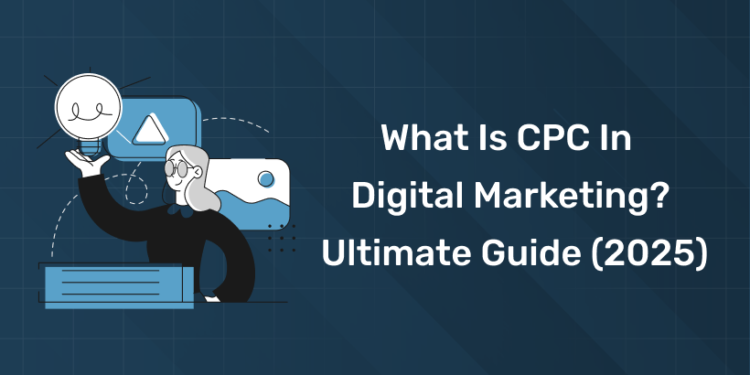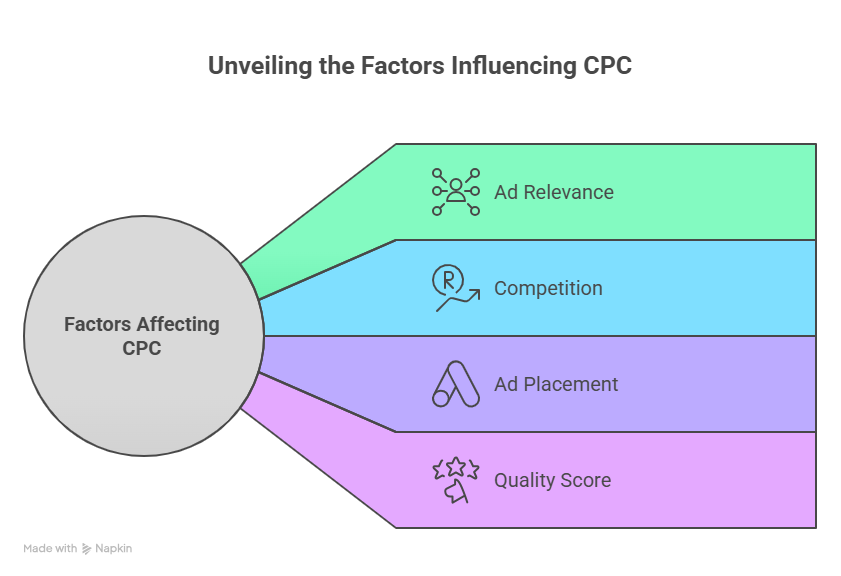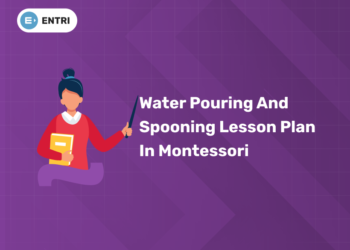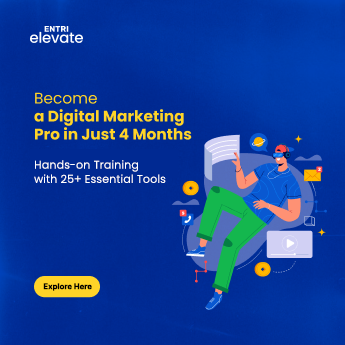Table of Contents
The rise of digital marketing has changed the relationship between businesses and their audience, one of the most important metrics to be tracked in this new marketing paradigm is CPC, cost per click. CPC is the cost you pay for each click made on your ad, whether you are using Google Ads, Facebook Ads, or LinkedIn.
This comprehensive guide will walk you through all aspects of CPC, what it is, how it operates, why it’s important, recent trends, and tips for optimizing it for maximum ROI.
Learn Digital Marketing Fundamentals! Get Free Demo Here!
What is CPC?
Under the CPC pricing scheme, advertisers pay the publishers per user who clicks the ad. Cost per click (CPC) is an important component of the digital advertising industry because it determines the cost of sending traffic to an advertiser’s website. The cost per click is influenced by the industry, the target market, or the competition level. CPC is critical to digital marketers seeking to maximize their ad spending and improve their campaigns.
It is the most widely employed pricing model by the platforms of digital advertising platforms, such as:
Google Ads / Search & Display Network
Facebook & Instagram Ads
Ads on LinkedIn
Twitter (X) Advertising
Bing Ads.
Ads on YouTube
👉Simply put, CPC = Advertising cost per click / No of clicks .
Why is CPC important?
1: What is the primary goal of SEO (Search Engine Optimization)?
As digital advertising gets more competitive, CPC is key to measuring efficiency and budget control. Here’s why it matters today:
- Budget Control – You only pay for actual engagement, not passive views.
- Measurable ROI – Every click can be tracked, so you can calculate return on ad spend (ROAS).
- Targeted Advertising – Platforms optimise your CPC based on audience targeting, relevance and competition.
- Scalable Campaigns – Allows you to test small budgets first and then scale up based on performance.
In 2025, with AI-driven ad optimisation and privacy changes (Google phasing out third party cookies) CPC helps businesses spend smarter and stay competitive.
Become an AI-powered Digital Marketing Expert
Master AI-Driven Digital Marketing: Learn Core Skills and Tools to Lead the Industry!
Explore CourseFactors affecting CPC
Many elements shape your CPC in digital ad campaigns. Marketers aiming to boost ROI must grasp these drivers. From fierce keyword competition in India’s ₹59,200 crore ad market to crafting compelling ad copy, each factor counts. This section explores what influences CPC in 2025, like AI-driven targeting or vernacular ads, and shares practical tips to lower costs.
Ad relevance
One of the biggest factors that can affect your CPC is how relevant your ad is to the target audience. A more relevant ad to the user increases the chances of them clicking on it, resulting to higher CTR and lower CPC. Make sure your ad copy and targeting is relevant to those who are interested in fitness, for instance if you are running an ad for a fitness product.
Competition
Your industry’s level of competition can also affect your CPC. If multiple advertisers are bidding for the same keywords, the cost per click will increase. This is especially true in competitive industries like insurance or banking. Targeting long-tail keywords that are less competitive but still relevant to your audience is key in these cases.
Ad placement
Your CPC can also be affected by where your ad appears on the search engine results page (SERP). Ads above the fold tend to have higher CPC than those below. This is because ads above the fold are more likely to be clicked and are more visible. But remember, there are times when there’s no direct link between ad position and CPC and finding the best ad placement requires some trial and error.
Quality score
Another big factor that can impact your CPC is your ad’s quality score. A metric called quality score measures the quality and relevance of your landing page, keywords and ad. Ads with higher quality score are thought to be more relevant and helpful to the user so they have lower cost per click. Focus on writing relevant ad copy, choosing the right keywords and improving your landing page to increase your quality score.
How Does CPC Work?
CPC is determined through ad auctions. Let’s break it down:
-
Bidding System:
-
Advertisers set a maximum bid (the most they’re willing to pay per click).
-
Platforms like Google Ads run auctions in real time whenever a user searches or scrolls.
-
-
Ad Rank & Quality Score
-
Higher bids don’t always guarantee better placement.
-
Platforms also consider ad relevance, CTR (click-through rate), and landing page quality.
-
-
Final CPC Formula
-
Final CPC is usually less than your maximum bid.
-
Example (Google Ads formula):
-
This means creating high-quality ads often reduces CPC, even if your bid is lower.
How to Calculate CPC (Cost Per Click)
In the world of digital marketing, CPC or Cost Per Click is a metric you can’t afford to ignore. It tells you exactly how much you’re paying every time someone clicks on your ad. Knowing your CPC helps you measure how efficiently your ad budget is being used and whether it is bringing you real value.
Calculating CPC is straightforward. It measures ad spend efficiency.
-
Formula: CPC = Total Campaign Cost ÷ Total Clicks.
-
Step 1: Sum campaign costs (ads, creative fees). Example: ₹15,000.
-
Step 2: Check clicks on Google Ads dashboard. Example: 600 clicks.
-
Step 3: Divide cost by clicks. ₹15,000 ÷ 600 = ₹25 CPC.
-
Analysis: Compare CPC to industry benchmarks. ₹25 is low for Google.
-
Tools: Use Google Analytics or Meta Business Suite for data.
Become an AI-powered Digital Marketing Expert
Master AI-Driven Digital Marketing: Learn Core Skills and Tools to Lead the Industry!
Explore CourseHow to Optimize CPC
Maximise your ad spend by optimising your cost-per-click (CPC). The cost per click (CPC) you pay when someone clicks on one of your ads. Make sure you’re getting the most clicks for your money by optimising your CPC. Your CPC is affected by many factors such as your bid, ad relevance, and user experience on the landing page.
So, here’s how to optimise CPC:
Enhance your landing pages: Ensure that your landing pages are pertinent, user-friendly and provide key information to visitors.
Try different bids: Test out different bid numbers to find that happy medium between your budget and your bid.
Monitor your results: Monitor the efficacy of your ads to find out which are performing and which need adjusting. Use this information to optimize your ads.
Do Keyword Research: To identify the terms to include in your adverts, use keyword research tools. Focus on low-competition, high search volume phrases.
Write pertinent ad copy: Your ad copy should be closely related to the user’s search. And, of course, ensure your ad copy is compelling and convinces people to click on it.
Learn Digital Marketing Fundamentals! Get Free Demo Here!
Entri App: Digital Marketing Course
The information and abilities provided by the Entri Elevate Digital Marketing Course are essential for success in the digital age. People who are interested in jobs in performance marketing but are new to digital marketing are the target audience for this course. You will discover new digital marketing channels, develop successful campaigns, and pick up a variety of tools and strategies for drawing in and interacting with consumers. These courses also give you the skills you need to succeed as digital marketer and are flexible and reasonably priced.
Key Takeaway:
CPC (Cost Per Click) is a major digital marketing metric, which is particularly significant in the case of businesses and advertisers. They are the ones who, through the CPC method, can be enabled to get targeted traffic to their sites. In fact, it gives a handy and traceable unit of measure to reflect the ad performance and the use of the advertising budget (return on investment).
By knowing the working of CPC, the factors that influence it, as well as the methods of campaign optimization, you will be able to lower your advertising costs while achieving the digital marketing strategies that you have planned. .
In 2025, the secret of having a competitive advantage over rivals in the digital market will be your ability to keep up with the CPC advertising trends and managing your campaigns effectively.
Frequently Asked Questions
What is CPC in digital marketing?
CPC (cost per click) is a metric that determines how much advertisers pay for the ads they place on websites or social media, based on the number of clicks the ad receives.
How is CPC calculated?
CPC is calculated by taking the total number of clicks and dividing it by the total cost of clicks. Your real cost-per-click (actual CPC), or the price you actually pay for a click on your advertisement, is the basis for calculating your average CPC.
What is the actual CPC?
The whole amount you pay for a click is known as your actual cost-per-click, or actual CPC. Frequently, you pay less sometimes significantly less than your maximum cost per click max.
How do I get high CPC ads?
Long-tail keywords are more precise and often command a higher CPC than broad keywords. You may improve the relevancy of your advertisements and draw in targeted traffic to your website or blog by using long-tail keywords into your content.














